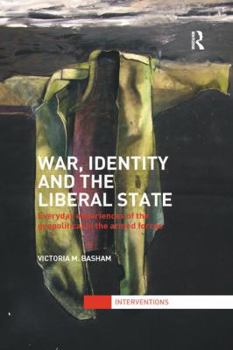War, Identity and the Liberal State: Everyday Experiences of the Geopolitical in the Armed Forces
Select Format
Select Condition 
Book Overview
War, Identity and the Liberal State critically examines the significance of gender, race and sexuality to wars waged by liberal states and the soldiers who wage them. Drawing on original fieldwork research with British soldiers, it offers insights into how their lived experiences are shaped by, and shape, a politics of gender, race and sexuality that not only underpin power relations in the military, but a wider geopolitics of war. It explores how shared and collectively mediated knowledge on gender, race and sexuality facilitates certain claims about the nature of governing in liberal states and about why and how such states wage war against 'illiberal' ones in pursuit of global peace and security. In linking the politics of daily life to the international, this book insists that it is vital to explore how geopolitical events and practices are co-constituted, reinforced and contested in everyday experiences, practices and spaces. The book also urges scholars interested in the linguistic construction of geopolitics to consider the ways in which everyday objects, spaces and bodies also reinforce particular ideas about war, identity and statehood and some of their violent consequences.
This book will be of interest to students and scholars of international studies, security, gender and feminist studies and critical and social theory.





